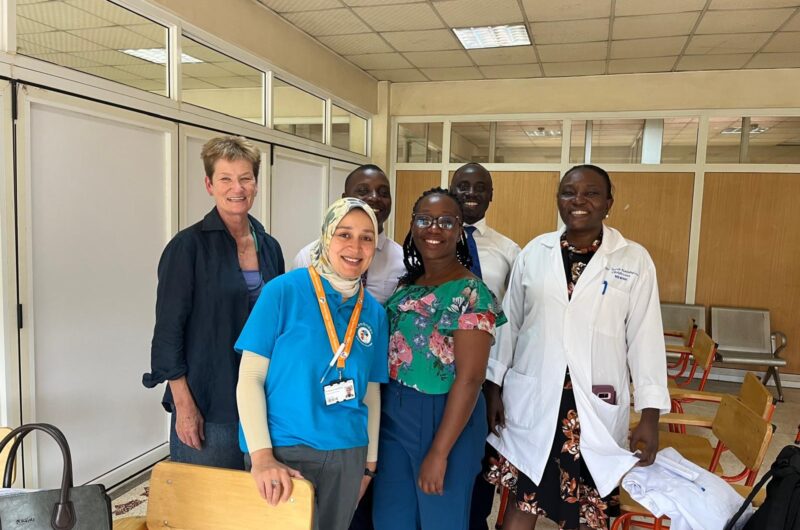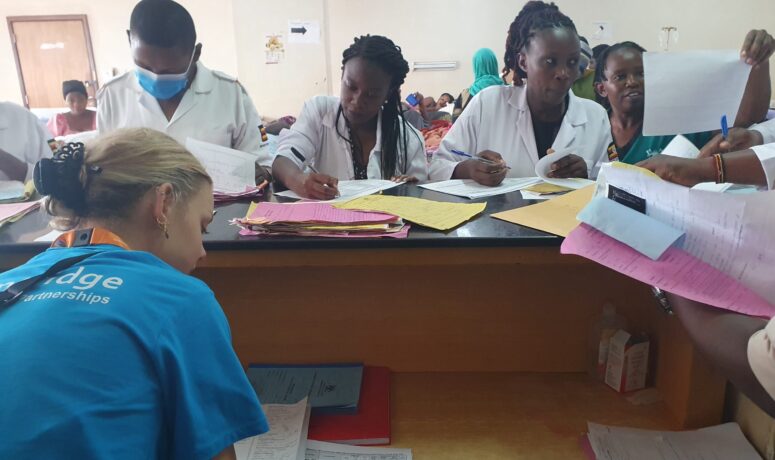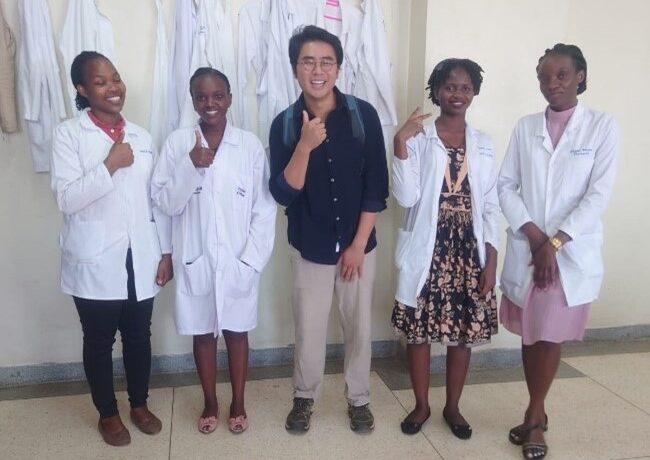Maternal & Neonatal Health
The Working to Improve Maternal and Neonatal Health partnership began in 2014 and has two active projects: Developing Maternal and Neonatal Health Guidelines, and Improving Antimicrobial Stewardship and Infection Prevention Control. They are closely linked and both focus on strengthening healthcare practices and processes to reduce the number of women and babies who die from preventable complications of pregnancy and childbirth.
The partnership activity involves staff and academic clinicians at the Cambridge University Hospitals NHS Foundation Trust (CUH) Rosie Hospital, the Makerere University Department of Obstetrics and Gynaecology, and national referral maternity hospitals in Kampala. It developed as an extension of a well-established research project between the University of Cambridge and Makerere University on the genetics of pre-eclampsia. The project now involves two national referral maternity hospitals in Kampala – Kawempe National Referral Hospital (KNRH) and Mulago Specialised Women and Neonatal Hospital, as well as smaller hospitals that refer women and babies who need more specialised care.
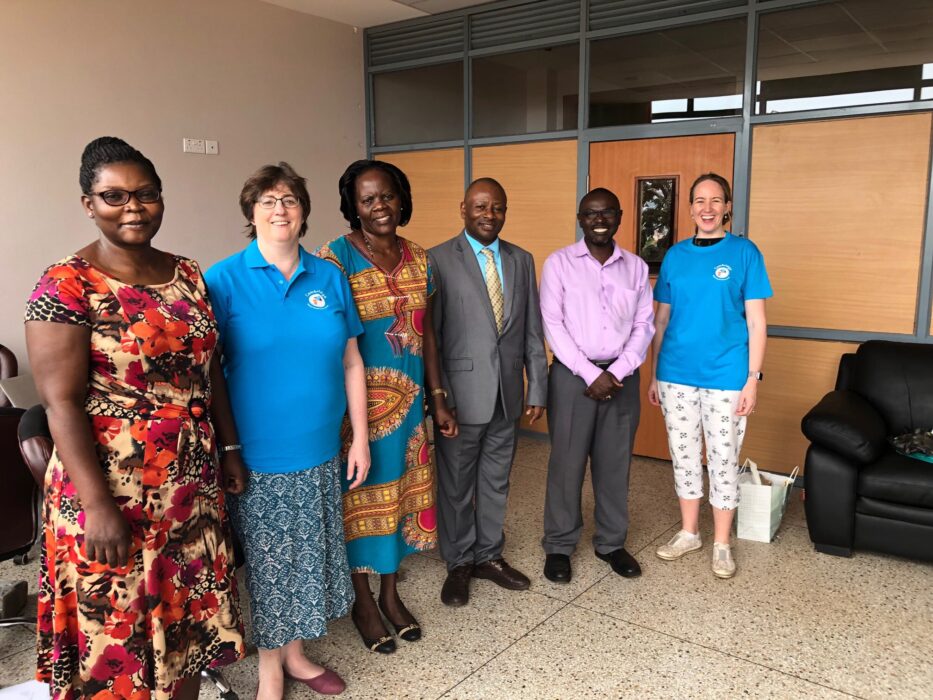
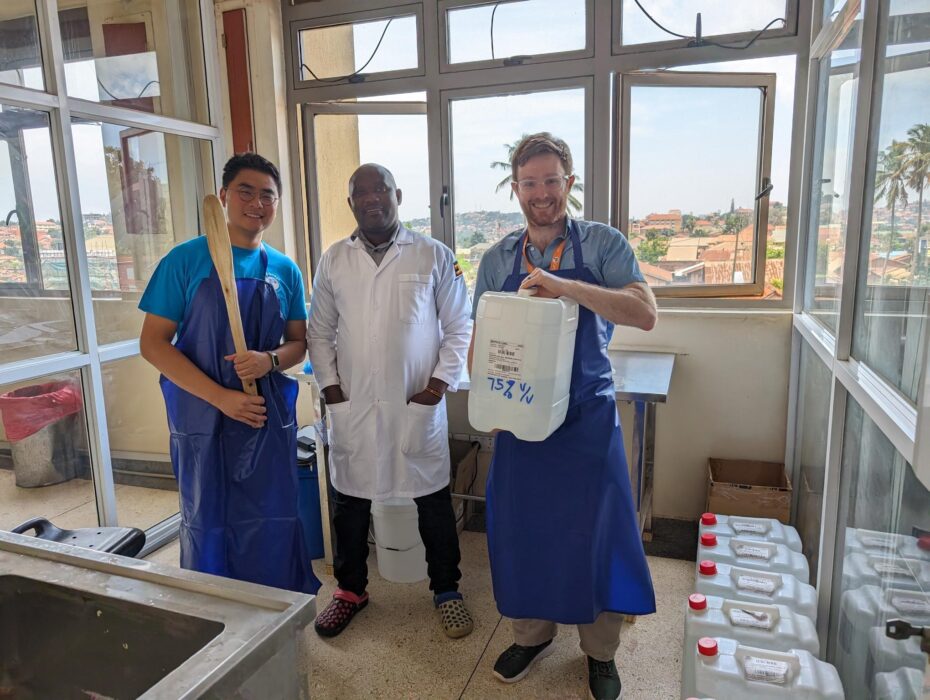
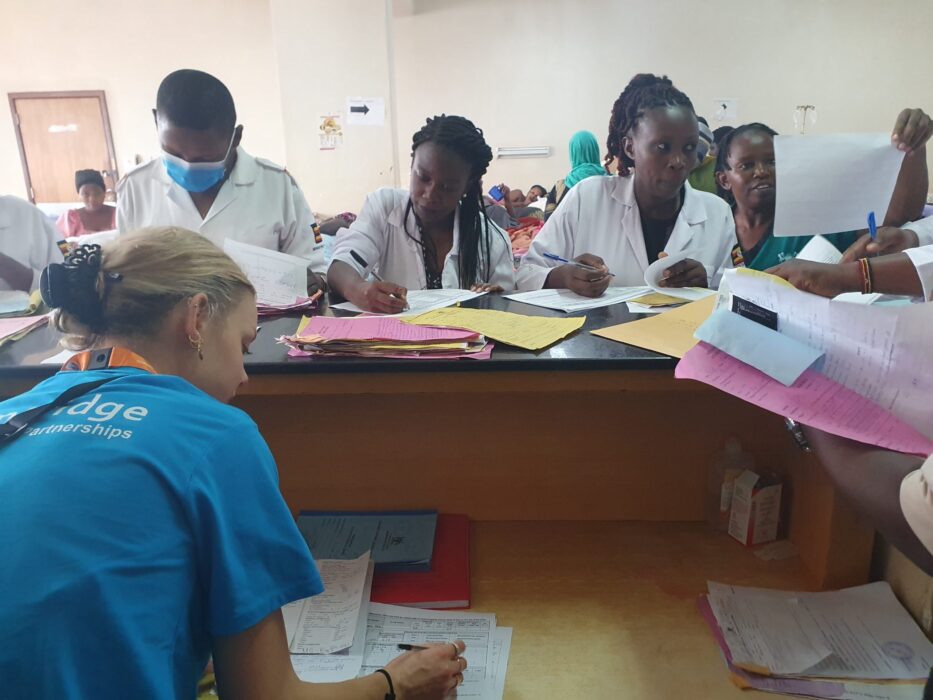
Why the partnership is needed
Almost 800 women die each day from complications in pregnancy and childbirth: that’s the equivalent of one every two minutes.(1) In 2020, around 287,000 women died during and following pregnancy and childbirth, and almost 95% of these deaths occurred in low-and-middle-income countries.(2) Most women die because of complications that are often preventable or treatable.
For newborns, the first month of life is the most vulnerable period. 2.3 million newborns died in 2022 and like maternal mortality, this is not evenly distributed around the world. Sub-Saharan Africa has the highest neonatal mortality rate, with premature birth, birth complications and neonatal infections some of the leading causes.(3)
The workload at Kawempe National Referral Hospital is huge – around 21,000 babies are delivered each year, compared to around 5,500 at The Rosie. Despite the enormous efforts of the overstretched staff, the maternal mortality rate is nationally four times the target global rate set in the UN’s Sustainable Development Goals for 2030 – 70 per 100,000 live births. By working collaboratively with Ugandan healthcare staff and partners, this project supports initiatives to bring the rate down.
For UK healthcare staff involved, the partnership is opportunity to learn from and build skills in different clinical environments, with fewer resources and where patients may present differently or much later. It improves their ability to manage and care for women from different ethnic backgrounds; increases their resilience and leadership skills; reinforces basic assessing skills to reduce unnecessary investigations and costs to the NHS, and cements the importance and value of multi-disciplinary working to ensure the best outcomes for women and their families.
“The beauty of this collaboration is that it is not one partner imposing their will on the other partner, it’s like working together, identifying issues, and then still working together to find solutions to those issues. So it is a combination of existing ideas and exposure of ideas to how other people are working on the same issues. Then we come up with a collective approach that will be beneficial to our patients.”
Dr Musa Sekikubo, Consultant Obstetrician and Uganda AMS IPC Partnership Lead
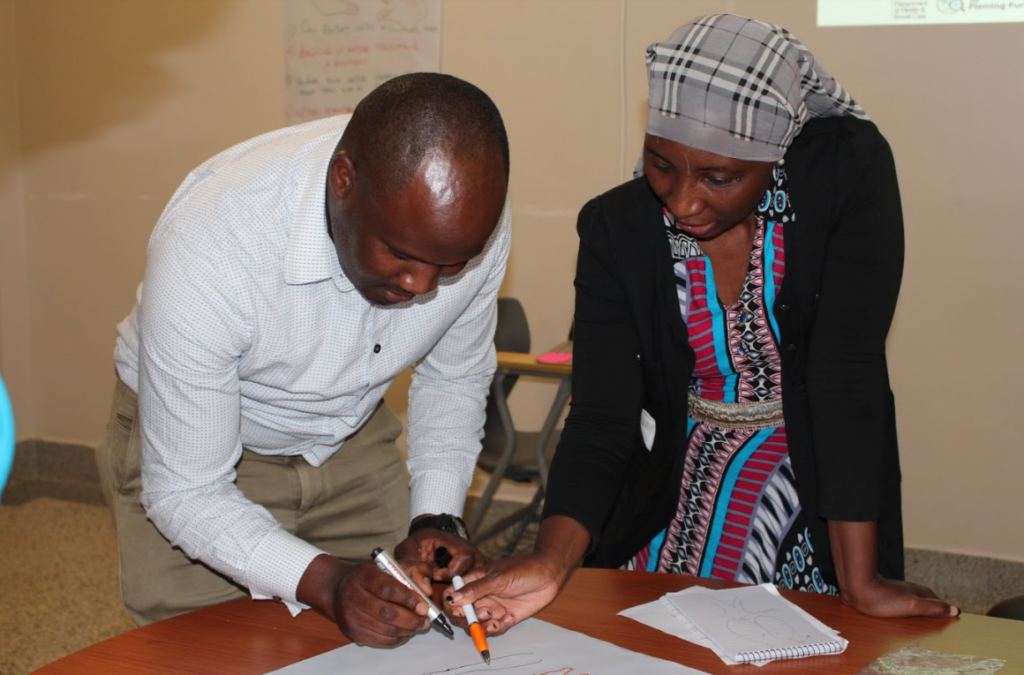
Maternal and Neonatal Health
The Maternal and Neonatal Health project is focused on developing and implementing local guidelines for the four main causes of maternal mortality. It involves reviewing and auditing how Uganda’s national guidelines are currently being used, and then considering how they need to be modified and communicated to ensure best practice at Mulago Specialised Women and Neonatal and Kawempe National Referral Hospitals. The UK and Ugandan teams are working together closely to develop an implementation and staff training package for the guidelines, which includes strengthening the governance structure within the hospitals to be able to monitor and evaluate their impact.
The teams are also working together to create a new textbook, ‘Principles of Obstetrics in Africa’, which will be published by Cambridge University Press (CUP). The book will sit alongside the current ‘Principles of Medicine in Africa’ and will be available for free online.
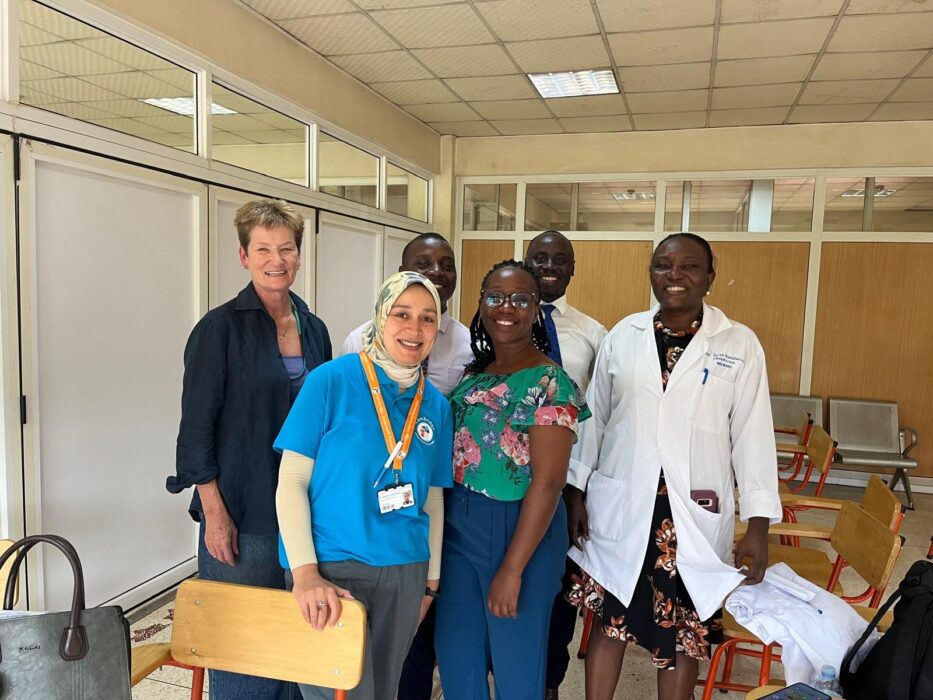
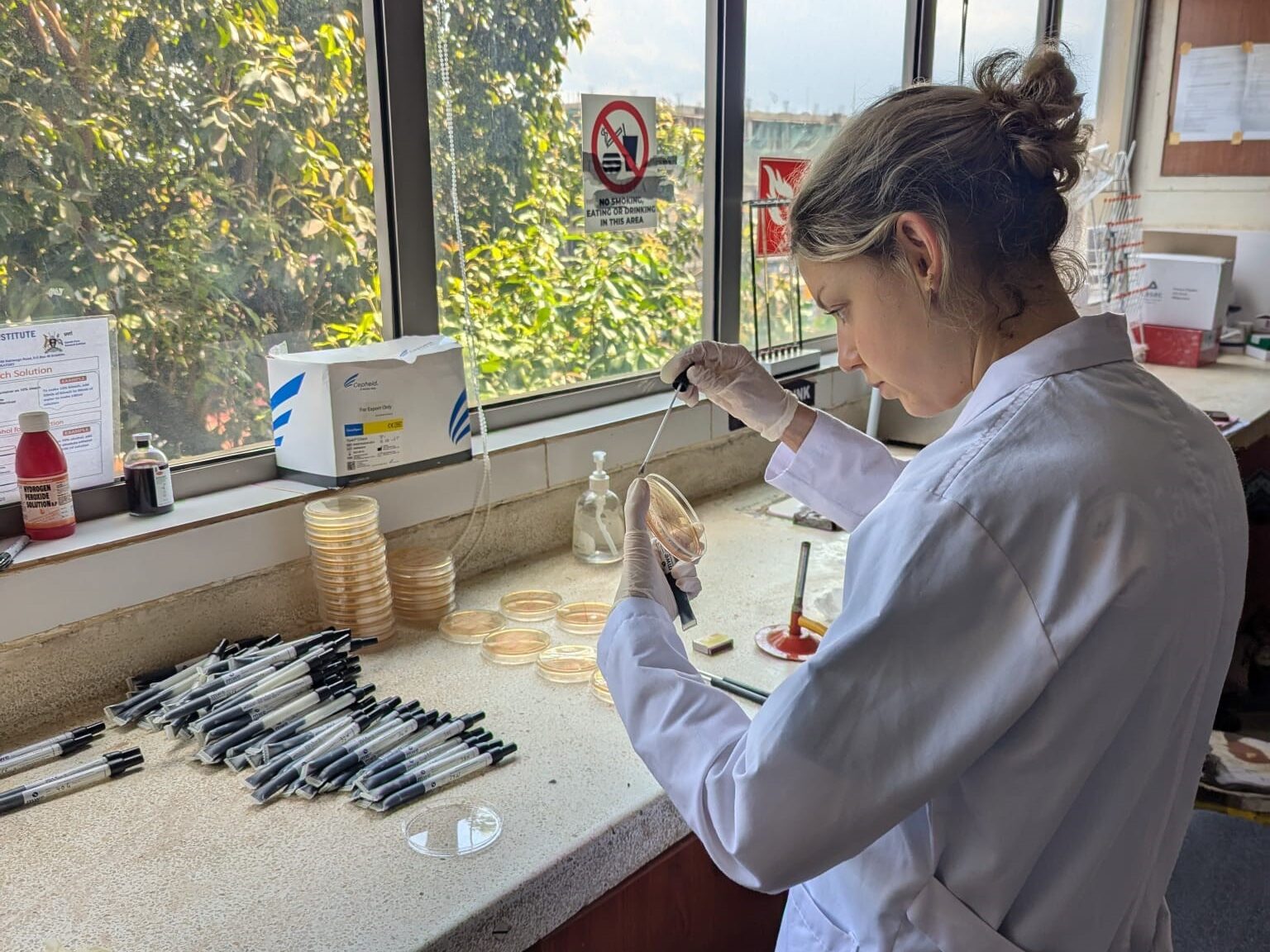
Antimicrobial Stewardship and Infection Prevention Control
The Antimicrobial Stewardship and Infection Prevention Control Project was added to the partnership in 2019. It is a Commonwealth Partnership for Antimicrobial Stewardship (CwPAMS) project, with funding from the Department of Health and Social Care’s Fleming Fund, managed by Global Health Partnerships (formerly THET). It builds on the work already done but with a particular focus on antimicrobial stewardship and infection prevention control measures, which are vitally important in preventing and managing infections – one of the most common complications of pregnancy and childbirth that causes significant mortality and morbidity.
The project is strengthening clinical, laboratory and diagnostic capability to increase understanding of antimicrobial resistance and improve prescribing practices to better manage maternal and neonatal patients in Kampala.
Work is focused on establishing antimicrobial stewardship (AMS) interventions at Kawempe and Mulago Specialised Women and Neonatal National Referral Hospitals and expanding these to four surrounding hospitals and health centres that refer patients. This ‘hub and spoke’ model is an effective way of improving processes and practices across the wider maternal healthcare network.
Watch the video below to learn more about the Working to Improve Maternal and Neonatal Health project.
References
1 https://data.unicef.org/topic/maternal-health/maternal-mortality/
2 https://www.who.int/news-room/fact-sheets/detail/maternal-mortality
3 https://www.who.int/news-room/fact-sheets/detail/newborn-mortality

